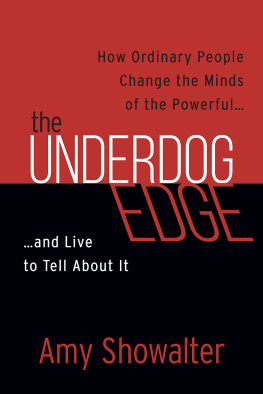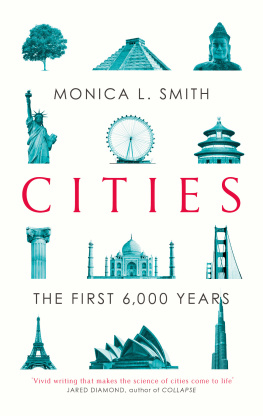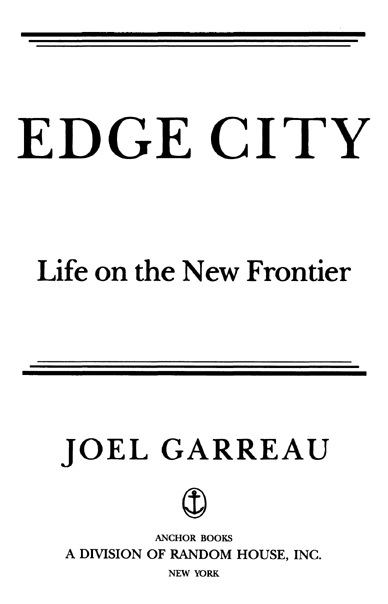Praise for Edge City
To look around at the convulsing of American cities is to wonder WHATS GOING ON? Joel Garreau has the answer, and a warm, vicious wit.
S TEWART B RAND
Fascinating entertaining and informative.
The Economist
An exuberant, witty book.
Business Week
Lively, thorough reporting.
Boston Phoenix Literary Section
[A] provocative work that brings to popular attention a major restructuring that is all around us but largely ignored by professional architects and planners.
Kirkus Reviews
Fascinating and meticulous anyone who wants to understand America, better understand this phenomenon.
B ILL M C K IBBEN , author of The End of Nature
Eminently readable, thought-provoking.
Publishers Weekly
But I reckon I got to light out for the Territory.
Huckleberry Finn
Welcome to Edge City.
We Americans are going through the most radical change in a century in how we build our world, and most of us dont even know it. From coast to coast, every metropolis that is growing is doing so by sprouting strange new kinds of places: Edge Cities. Not since we took Paul Reveres Boston and Benjamin Franklins Philadelphia and exploded them into nineteenth-century industrial behemoths have we made such dramatic changes in how we live, work, and play.
Most of us now spend our entire lives in and around these Edge Cities, yet we barely recognize them for what they are. Thats because they look nothing like the old downtowns; they meet none of our preconceptions of what constitutes a city. Our new Edge Cities are tied together not by locomotives and subways, but by freeways, jetways, and jogging paths. Their characteristic monument is not a horse-mounted hero in the square, but an atrium shielding trees perpetually in leaf at the cores of our corporate headquarters, fitness centers, and shopping plazas. Our new urban centers are marked not by the penthouses of the old urban rich, or the tenements of the old urban poor, but by the celebrated single-family home with grass all around. For the rise of the Edge City reflects us moving our jobsour means of creating wealth, the very essence of our urbanismout to where weve been living and shopping for two generations. The wonder is that these places, these curious new urban cores, were villages or corn stubble just thirty years ago.
Joel Garreau has spent four years exploring Americas Edge Cities. From the Washington area (which alone encompasses sixteen Edge Cities) to Los Angeles, Atlanta, New York, Phoenix, Detroit, San Francisco, Boston, Houston, and Dallas, Garreau explains how these Edge Cities are changing our lives in countless ways, many of them elemental and profound. He examines everything, from the kinds of jobs Edge Cities generate to whether they will ever be good places in which to fall in love or hold a Fourth of July parade. For our new civilization, built on the shoulders of these Edge Cities, reflects once again our perpetually unfinished American business of reinventing ourselves, redefining ourselves, announcing that our centuries-old revolutionour search for the future inside ourselvesstill beats strong. Thus, by looking at what we have done, we can more clearly see who we are, how we got that way, where were headed, and what we value.
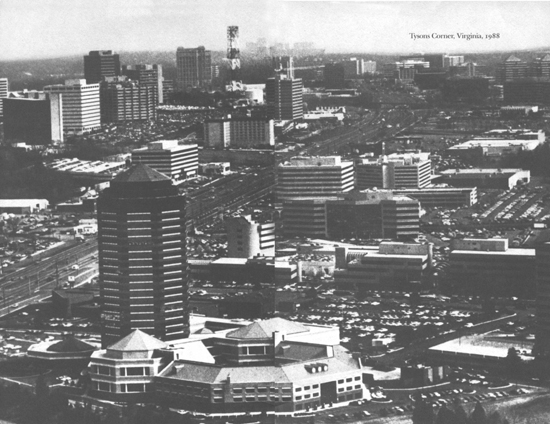
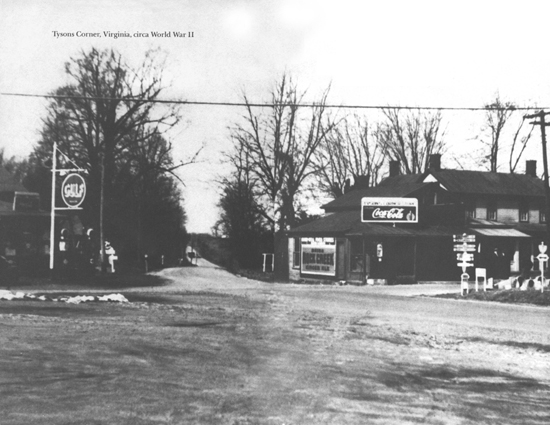
Also by Joel Garreau
THE NINE NATIONS OF NORTH AMERICA
FIRST ANCHOR BOOKS EDITION, OCTOBER 1992
Copyright 1991 by Joel Garreau
All rights reserved under International and Pan-American Copyright Conventions. Published in the United States by Anchor Books, a division of Random House, Inc., New York, and simultaneously in Canada by Random House of Canada Limited, Toronto. Originally published in hardcover in the United States by Doubleday in 1991. The Anchor Books edition is published by arrangement with Doubleday.
Anchor Books and colophon are registered trademarks of Random House, Inc.
Maps by Dave Cook
PhotographTysons Corner, Virginia, 1988. Photo by Craig Herndon; copyright 1988, The Washington Post.
PhotographTysons Corner, Virginia, circa World War II. Courtesy of Fairfax County Public Library Archive.
Excerpts from Christopher Alexanders unpublished manuscript The Nature of Order reprinted by permission of the author.
Manassas, Theres No Need for You to Die,
words and music by David W. Lowe,
1988, reprinted with permission.
Library of Congress Cataloging-in-Publication Data
Garreau, Joel
Edge city : life on the new frontier/Joel Garreau.
Anchor Books ed.
p. cm.
Originally published: New York: Doubleday, 1991.
1. Metropolitan areasUnited States. 2. Real estate developmentUnited States. 3. Land use, UrbanUnited States. 4. Sociology, UrbanUnited States. I. Title.
[HT334.U5G37 1992]
307.760973dc20 92-12159
eISBN: 978-0-307-80194-4
www.anchorbooks.com
v3.1
T O S IMONE
Who was three when this book began and five
when it ended.
The only times better than the ones
when you left me alone so I could work
were when you didnt.
A ND TO E VANGELINE
Whose surprisingly early arrival
led to that memorable dawn demonstration
that it is in fact possible
to get from Irvine to Los Angeles International Airport
in forty-one minutes.
Contents
INTRODUCTION
PIONEERS, FRONTIERS,
AND THE TWENTY-FIRST CENTURY
1
THE SEARCH FOR THE FUTURE INSIDE OURSELVES
Life on the New Frontier
2
NEW JERSEY
Tomorrowland
3
BOSTON
Edge City Limits
4
DETROIT
The Automobile, Individualism, and Time
5
ATLANTA
The Color of Money
6
PHOENIX
Shadow Government
7
TEXAS
Civilization
8
SOUTHERN CALIFORNIA
Community
9
THE SAN FRANCISCO BAY AREA
Soul
10
WASHINGTON
The Land
I
Manassas: Long Ago and Far Away
II
Present at Creation
III
The Machine, the Garden, and Paradise
IV
Pilgrims Progress: Boom
V
But What About the Land?
VI
The Final Battle
11
THE LIST
Edge Cities, Coast to Coast
12
THE WORDS
Glossary of a New Frontier
13
THE LAWS
How We Live
INTRODUCTION
Pioneers, Frontiers, and the Twenty-first Century

THE CONTROVERSIAL ASSUMPTION undergirding this book is that Americans basically are pretty smart cookies who generally know what theyre doing.
Lord knows, we have sorely tested that premise over the last four centuries. But it is further assumed that this good sense is especially evident when Americans cussedly march off in precisely the opposite directions from those toward which our elders and betters have been aiming us. At such times of apparently rampant perversity, this thinking goes, the correct response is not to throw up ones hands and decry Americans as fools. It is to echo Gandhi when he said, There go my people; I must rush to catch up with them, for I am their leader.





